By Liane Kupferberg Carter
“I’m kidnapping you to Italy and this time I’m not taking no for an answer,” my college roommate Pat announces.
Pat bought a vacation house in Umbria, Italy eight years ago, but my husband Marc and I have never visited. We aren’t able to travel together much because we have a developmentally disabled son. “You should go with Pat,” Marc says. “It’s the trip of a lifetime.”
Still, travel is a mixed bag. There’s the pleasure of it, of course. But there is always an undercurrent of longing and sadness too. I so wish Marc and I could travel together. And I feel guilty. Doesn’t he deserve some respite too? Why should I be the one who gets to go gallivanting?
“What can I bring you?” I ask him. “Gloves? A wallet? Wine?”
“An ancient Etruscan artifact,” he says.
“Right,” I say. “I’ll go digging up Pat’s back yard.”
Pat has invited three of her closest friends. None of us knows each other well. “What if we don’t get along? What if the others don’t like me?” I ask Pat.
“Lynne and Eve said the same thing!” she says. “Do you think I would have put us together if I thought we wouldn’t click?”
So I pack, in my usual anxious way, for every contingency. A first aid kit. A four inch folding umbrella. An Italian phrase book. I’m the kind of girl who always remembers to bring the toothpaste.
The four of us rendezvous in Rome. Our American luggage is too much for our rented European trunk, so we shoehorn carry-on bags into the back seat, and make our way two hours north. Umbria lies in the shadow of its more famous neighbor Tuscany. Toscana. I roll the name around in my mouth. Pat’s house, La Culla dell’Anima, is a three bedroom stone farmhouse on a country road.
“I think I need the Jaws of Life to get me out of this car,” I say, heaving myself out from under a suitcase.
As we unpack, Lynne remarks that she has just seen a scorpion in the bathtub.
I resolve to shake out my shoes every morning. “That’s why I packed Benadryl and an EpiPen,” I say.
“Of course you did,” Pat says fondly.
At dusk we hear the rustle of baby bats in the trees. That night the sky is filled with more stars than I’ve ever seen. We stand in the backyard picking out constellations, gasping when a star streaks across the sky.
The next morning, I wake to a percussive “pop-pop-pop.” I push open the dark bedroom shutters. I am dazzled by sunlight. The soundtrack of “A RoomWith a View” soars in my head.
“Hunters shooting cinghiale,” Pat says. Wild boar. Which will inevitably make its appearance in a ragu on every menu during our stay.
“Andiamo, miei amici,” she says, tour guide for our Umbra Avventura. We pile into the car; Eve drives. “So here we are, three Jewish girls and an Irish chick heading to church on Sunday,” Pat says. We park in a fragrant field of rosemary and mint in Assisi. A bearded monk in sackcloth with a rope belted around his middle stands in front of us, waiting to touch the tomb of St. Francis. When he kneels to pray, I see the soles of his bare feet. They are as weathered as the leathery pads of a dog’s paw.
We make our way slowly up the steep hill; Lynne needs to pet each stray dog we pass. “What’s that religious sculpture?” Eve asks, stopping beside a wire fence. We determine that the work of art we’re admiring is actually a thousand wads of chewing gum. “Probably left by bored teenagers on class trips,” I say. On our way back down, we stop at a café. I savor a scoop of mint chocolate gelato on the sun-drenched patio.
That evening we dine out with Pat’s friend Luigina, who speaks charmingly accented English. When we compliment her on it, she says, “I speak the English of a queen.”
Later, Luigina notices Pat is lost in thought, and asks, “A small coin for your thinking?” We erupt, choking from tears of wine-laced laughter. “I haven’t laughed that hard in years,” Eve says happily. “Grazie mille.”
“Thank you, Millie,” Lynne says.
“See you again tomorrow night,” we tell Luigina at evening’s end. “Domani sera.”
“Doe-many Sarah,” Lynne repeats with a nasal New York accent, sending us into peals of laughter again.
The next day – all our days — start brisk and chilly, then warm to a sunny perfect 72 degrees. We head to a chocolate festival in Perugia. We are rounding the ramparts of a ruined fortress when Eve says, “I love those Italian poplars.” She points to a row of trees.
“Um, Eve? Those are cypress,” I say.
“Really?”
I pull out a book. “I brought a guidebook.”
“Of course you did,” Eve says.
From one medieval hill town to another, we wind our way on vertiginous mountain roads and narrow twisting streets. We visit Orvieto. Deruta. Siena. Montepulciano. We read aloud from my guidebook. We do the obligatory tour of each town’s cattedrale, then turn to the alluring shops that ring the medieval squares.
Pat links her arm in mine and sums it up: “Here’s the Duomo. Let’s shop!”
I call home each night. “How are you boys managing without me?”
“We’re doing fine,” Marc reassures me. “Did you find my Etruscan artifact yet?”
You see a different Italy when you travel with someone who has lived there. Pat is fluent, even pointing out puns in Italian. She translates menus. Directions. History plaques. She’s doing mental gymnastics; it must be exhausting. The rest of us don’t speak Italian, and my high school French doesn’t take me far. But somehow, I understand some of what Pat is saying. Perhaps she speaks it more slowly and deliberately than the Italians; perhaps it’s her American accent, or simply the familiarity of her voice.
But whether it’s in English or Italian, Pat charms people. She’s oblivious to it, which adds to her allure. We watch with amusement as she effortlessly charms the car rental clerk. Waiters. Shop keepers. It’s not just her outer beauty – the abundant auburn hair, the vibrant smile, the hearty laugh that makes you feel hugged. She glows from within. Henry James described Italy as “warm and living and palpable.” He could have been speaking about Pat.
All week long, as women do, we share stories of husbands, both current and ex; career crossroads; brushes with illness; fears of losing frail parents. We talk endlessly of children and beloved pets. “We used to have a Vizsla,” Eve says. “We chose her because she matched the terra cotta kitchen floor. Which is a telling glimpse into my ex-husband.” And we’re off on a fresh wave of storytelling. Each of us spills complicated secrets. Toxic lovers. Infidelities. My secret engagement to Marc, just two weeks after we’d met. Even when you travel to the furthest reaches of the planet, I think, there’s no getting away from yourself. Yes, I have a disabled son; we have a complicated family life. But listening to these women’s stories, I appreciate that I am also lucky, to be so long and happily married.
One afternoon Pat picks a bunch of grapes off the bush in the back yard and displays them proudly. “I grew that!” For millennia people have been cultivating and growing their own food. Even so, we’re amazed. That evening we light a fire; Luigina and her brother join us. Luigina cooks a pot of the local fresh pasta. It is dense and chewy, and she tosses it with olive oil and tartufi. Black truffles, smelling of wet earth and heaven. Umbria is the heart of truffle country. Tartufi are literally worth their weight in gold.
Luigina passes a plate of traditional Umbrian bread, made without salt. “After the Pope imposed a salt tax in the mid-1500s, Umbrians stopped baking bread with salt,” Pat explains. I expect it to be tasteless, but it is surprisingly perfect for la scarpetta – soaking up sauce too good to leave behind. We pour the brunello we’ve picked up that afternoon in the hill town Montepulciano, and toast to international friendship.
We have lunch in Todi on our last day. We wander past a small jewelry store; a delicate gold necklace has caught my eye. The design is Etruscan. “Would you like to try it on?” the jeweler asks.
“I’m just looking,” I say shyly.
“Go ahead,” Pat urges.
I look in the mirror; it’s beautiful. “Marc keeps telling me to bring back an Etruscan artifact,” I joke. “I don’t think this is what he meant.”
Pat pulls me aside and whispers. “If your husband were here he’d buy it for you in a heartbeat. Don’t you think you deserve it?” She gives me a long knowing look. For nearly forty years we’ve shared each other’s histories, heartbreaks and happiness. I feel an outpouring of love, for her, these women, this week. She is my oldest, dearest friend, who knows everything about me yet manages to love me anyway.
I buy the necklace. The jeweler wraps it painstakingly, and says something that sounds wistful. Pat translates. “He says he loves all his creations like children, and needs to say goodbye to this one.”
“Should we give him a minute alone with it?” I ask. Everyone laughs.
“Grazie Mille!” I tell the jeweler.
“Thank you, Millie,” Lynne says.
“Who is this Millie we keep thanking?” I ask.
That evening as we pack, Lynne remarks, “I like how organized you are. My idea of packing is tossing in a prom dress, a plunger and three pairs of party shoes.” Has she been shaking out her shoes all week, the way I have? Probably not.
The next morning we close up the house. I ask Pat about why it is called La Culla dell’Anima.”
She smiles. “It means,‘The Cradle of the Soul.’”
Indeed.
It has been a glorious week. I’d forgotten just how restorative the company of other women can be. The ease. The comfort. The jokes. The sheer fun. We have shared the collective stories that are the coinage of the feminine realm, our currency of intimacy. A small coin for your thinking.
We pull onto the highway and head back south to Rome. Wedged into the back with luggage on my lap and the edge of another suitcase balanced on my shoulder, I can’t even see out the window.
“I have eaten way too much tartufi,” I announce. “There is too much of a good thing. My stomach is in revolt.”
“You have Irritable Bowel Syndrome?” Lynne asks sympathetically.
“Of course she does!” Eve says. “She’s Jewish.”
“On behalf of the Italian Republic, I would like to thank you for the surge in the Italian economy this week,” Pat says. “And despite what you all say, I do not need a vacation after the vacation. I am feeling loved and rejuvenated and that’s because you are all so dear to me and it was very special to have you so close.”
Henry James called Umbria “the most beautiful garden in all the world.” Umbria: Italy’s fertile green heart.
And now mine.
Thanks, Millie.
Liane Kupferberg Carter is the author of the memoir, Ketchup Is My Favorite Vegetable: A Family Grows Up With Autism (Jessica Kingsley Publishers.) Her articles and essays have appeared in the New York Times, the Chicago Tribune, Brain, Child, Brevity, Literary Mama, and The Manifest-Station. For more information, visit her website at https://www.lianekupferbergcarter.com/, follow her on Facebook athttps://www.facebook.com/LianeKupferbergCarter/ and Twitter at @Lianecarter.

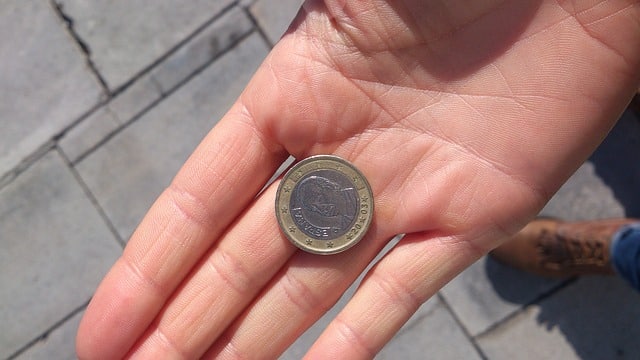
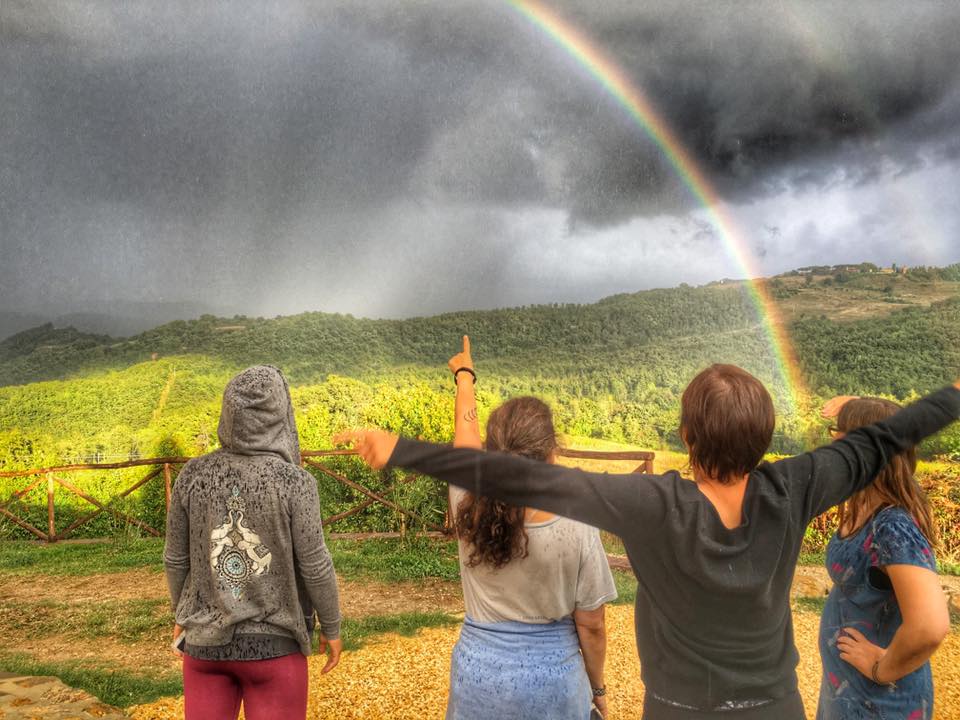
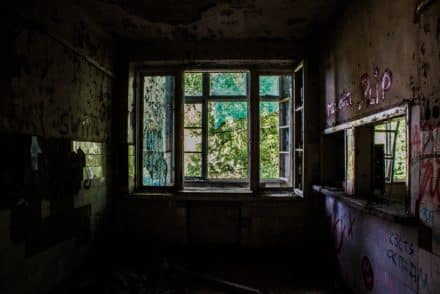
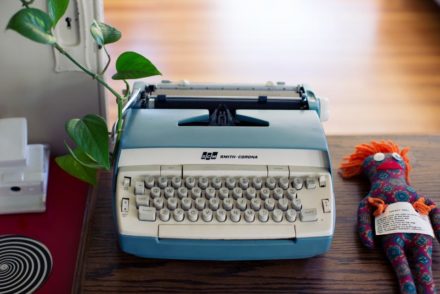
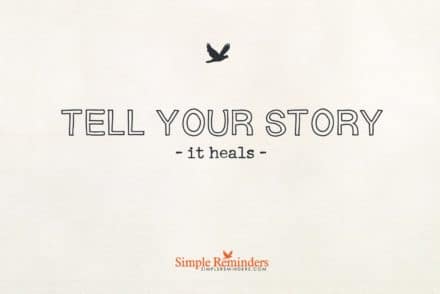
No Comments